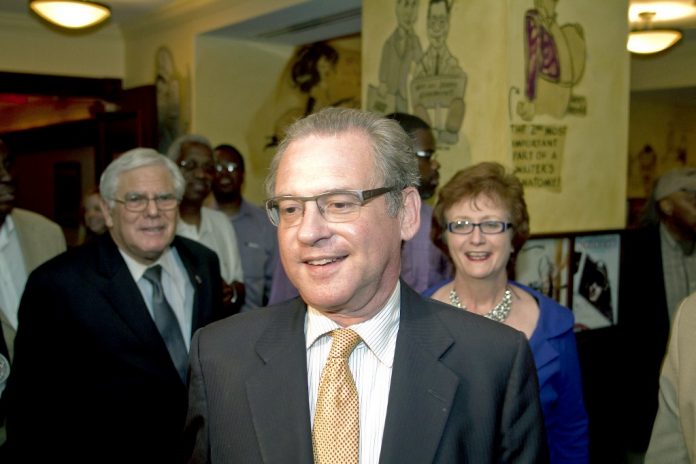Butkovitz
City Controller Alan Butkovitz has, for years, been concerned with the financial outlook for baby boomers.
“There’s a huge percentage of the population ready to retire, but they’re financially not ready to retire.”
Butkovitz took a look at data from 2012–14 for people 60 or older in the 19111, 19114, 19115, 19116, 19149, 19152 and 19154 ZIP codes. The data showed that older residents in the Northeast are working longer at the same time their retirement income has declined. Poverty increased slightly.
To address these concerns, Butkovitz has scheduled a series of financial wellness fairs.
The public is invited to a fair on Saturday, Oct. 22, from 10 a.m. to 1 p.m. at Pelbano Recreation Center, at 8101 Bustleton Ave. in Rhawnhurst.
The day will include senior fraud tips, housing counseling, credit counseling, retirement planning, food, refreshments and raffles.
Butkovitz will be joined by U.S. Rep. Brendan Boyle, state Sen. John Sabatina Jr., state Rep. Ed Neilson, City Councilman Brian O’Neill and Helping Hand Home Health & Hospice.
Clarifi, a credit counseling agency, will give a PowerPoint.
The city, state and community organizations will provide resources.
“We want to get people into the habit of saving,” Butkovitz said.
Another financial wellness fair will take place on Saturday, Nov. 12, from 10 a.m. to 1 p.m. at Gambrel Recreation Center, 1900 Wakeling St. in Frankford.
Butkovitz said individuals should have an emergency account that equals six months of income. The money could be used for unforeseen events such as job loss, car breakdown or illness. Instead, many people live in a “credit economy,” pushing payment of bills into the future and dealing with high interest rates.
“The whole mindset is different than it was 50 years ago,” he said.
In Philadelphia, for workers age 25–64, 37 percent participate in an employee-sponsored retirement plan, compared to 45 percent nationwide. More than half of the workers do not have access to a 401k-style retirement plan.
“They’re totally dependent on Social Security,” Butkovitz said.
Almost 70 percent of people have less than $1,000 in savings. Such scant savings lead more people to welfare, Butkovitz said, adding that businesses suffer because consumers don’t have much to spend. Many have to choose to buy food or medicine or make car insurance payments, and it creates what Butkovitz calls a “downward spiraling effect.”
“They work until they’re 80 years old or die,” he said.
City controller’s office auditors and other staff go to schools to promote financial literacy and discourage spending habits that lead to low credit scores.
Butkovitz remembers, when he was a kid, opening an account at PSFS bank for $5 and saving 10 cents a week. He’d be happy to see kids today use piggy banks.
The controller is encouraged to see his young employees be cautious about spending too much money, and he hopes they start to build a nest egg.
The new path that Butkovitz wants to chart for Philadelphia includes Open Multiple Employer Plan, a proposed city-sponsored plan that could include payroll contributions; Secure Choice, a city-sponsored Individual Retirement Account program that would be mandatory for all businesses above a certain size; and myRA, a voluntary program that allows any citizen to open a free IRA.
City Council members Allan Domb, Derek Green, Al Taubenberger and Cherelle Parker are on board, as are many financial advisers.
Butkovitz and htop aides Bill Rubin and Brian Dries, have conducted focus groups on the above plans, including with members of the Greater Northeast Philadelphia Chamber of Commerce.
“The response has been almost universally positive,” Butkovitz said. “I think this is going to be a budding movement.” Call 215-MU6–8896.••





